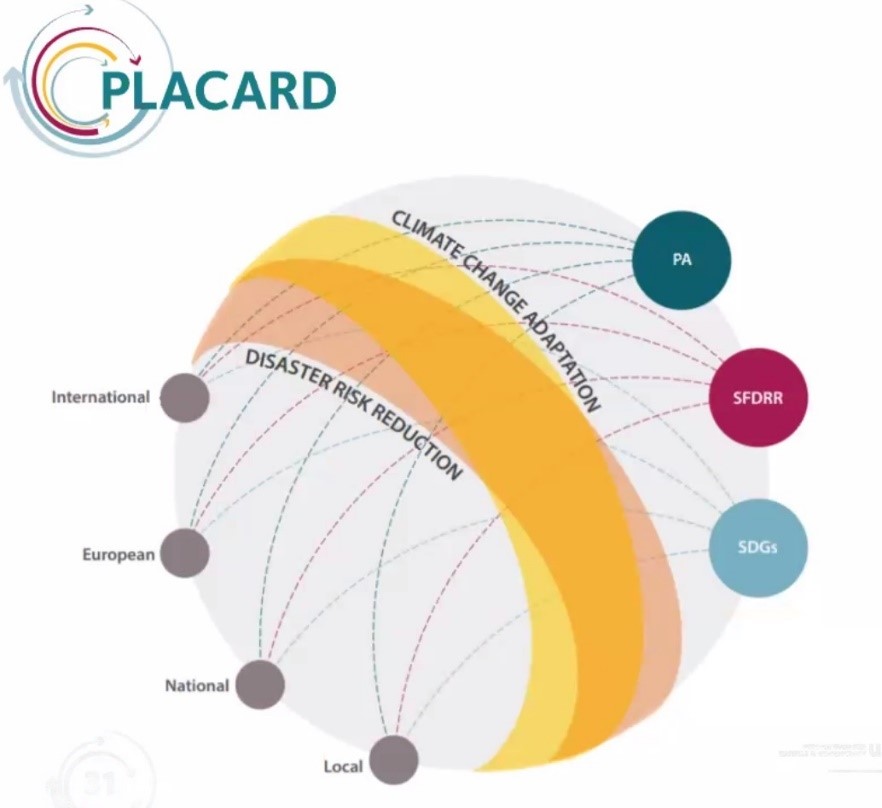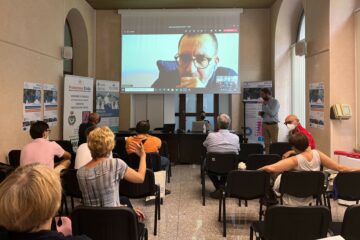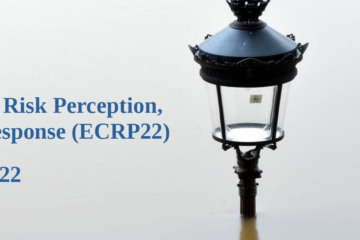There is little doubt that the world is moving into a new paradigm of global governance. A significant driver of this circumstance must be attributed to the scientific insights on climate change and the growing impact to the various levels of human settlements that is expected.
With the establishment of the Sustainable Development Goals (SDGs), the Paris Agreement on Climate Change (PA) and the Sendai Framework on Disaster Risk Reduction (SFDRR), impressive high-level efforts were made to organize the idea of a changing world. The standing challenge, remains in sharing knowledge and enhancing collaboration between climate change adaptation & disaster risk reduction expertise at the level of research, policy making and practical implementation extending from a high level to the communities that are affected.
This challenge was addressed by the European Commission within its Horizon 2020 Call (2014) for research on Disaster Resilient Societies (DRS). The most suitable answer came from the PLACARD project (GA 653255), which invited stakeholders to its final conference on May 14th. The PLACARD Interchange is providing a platform to various stakeholder networks, research, policy initiatives and information sources to enhance the dialogue between them and thus break silos to foster cooperation. With DRR and Climate Change Adaptation being two very complex subjects that involve many different types of stakeholders, finding a common language on the challenges ahead and joint solutions on how to overcome them seems to be the hardest thing to do.
This is also a concern of the RESILOC Project. With the overall goal of improving the disaster preparedness of EU Communities and thus supporting European policies on resilience in societies the connection to climate change adaptation cannot be ignored. Usability of the RESILOC Platform to the communities will be the most important measure of success, yet it will be equally important to align the activities that work on a community level with the international frameworks to contribute towards a harmonized effort of overcoming the challenges ahead. (Top Down Bottom Up Approach). A dialogue-based platform that connects the different levels of engagement will have the capacity to supports such efforts. (compare graphic: PLACARD Levels of Interchange)

In addition to the general interchange between DDR and CCA actors, the Platform might also become a useful elaboration tool for best practices in conjunction with the European Green Deal, through which the European Commission firmly commits itself to a regional implementation strategy of the globally established frameworks. The first draft of the EU Climate Law (March 4th 2020) suggests that the EU will not be shy of solidifying this commitment by adding a legal layer to it. This will be of significance to ongoing projects. RESILOC for example is looking to develop a platform for measuring and improving the resilience impacts in EU Communities. This effort is focused on the minimisation or prevention of disastrous impacts from natural hazards that could well be climate change induced.
As RESILOC is committed to contributing to European Policy making, it might be of benefit to have an interchange platform that can assist understanding of how EU directives will adapt under the Green Deal Paradigm and how we as RESILOC can make contributions towards it.
The main take-aways from the conference were the knowledge about the tools that will be available for active cooperation and a first link with DG-ECHO regarding the possible contribution of the RESILOC Project to the EU Directives in connection with the Green Deal Strategy.



0 Comments